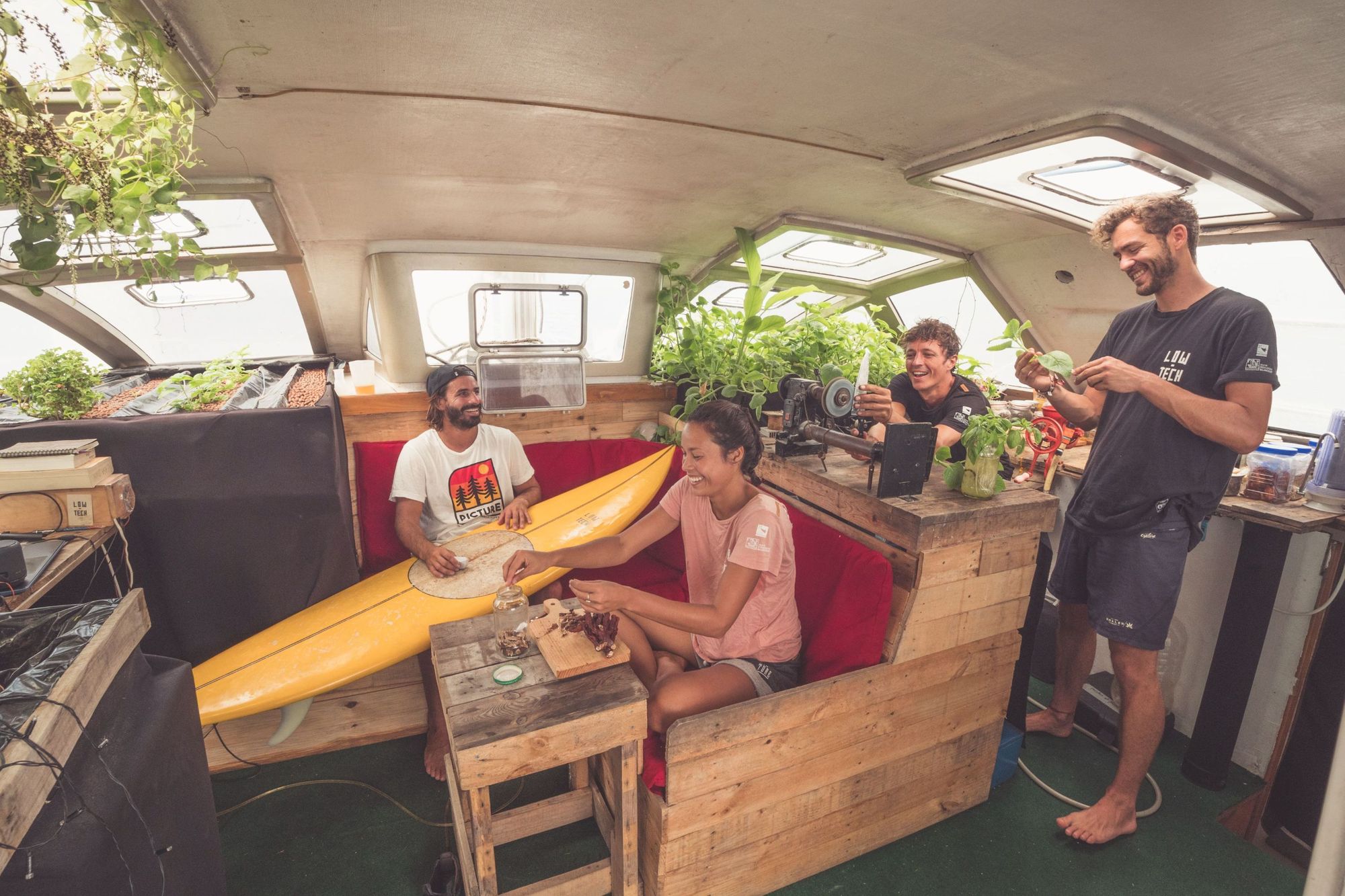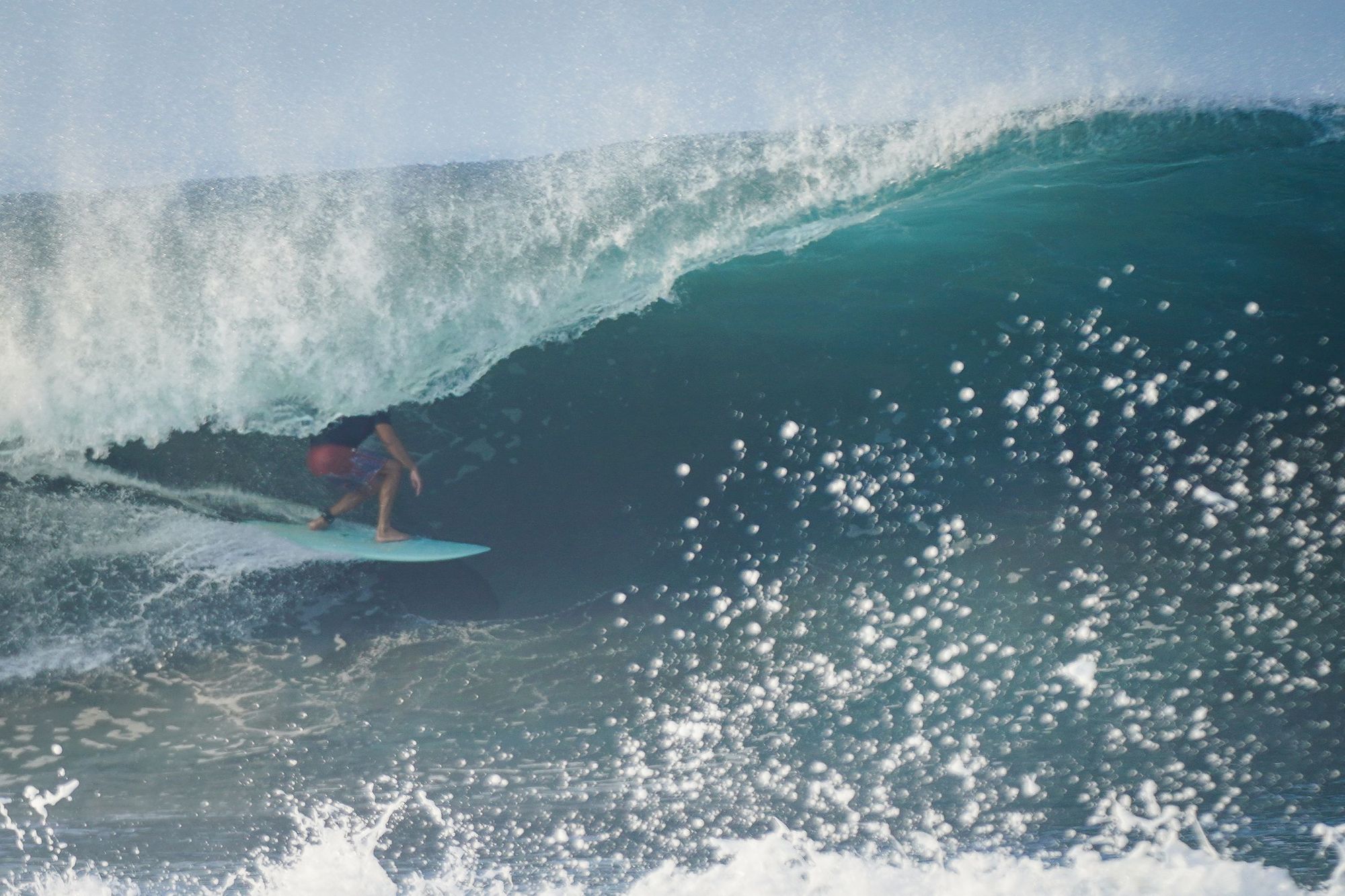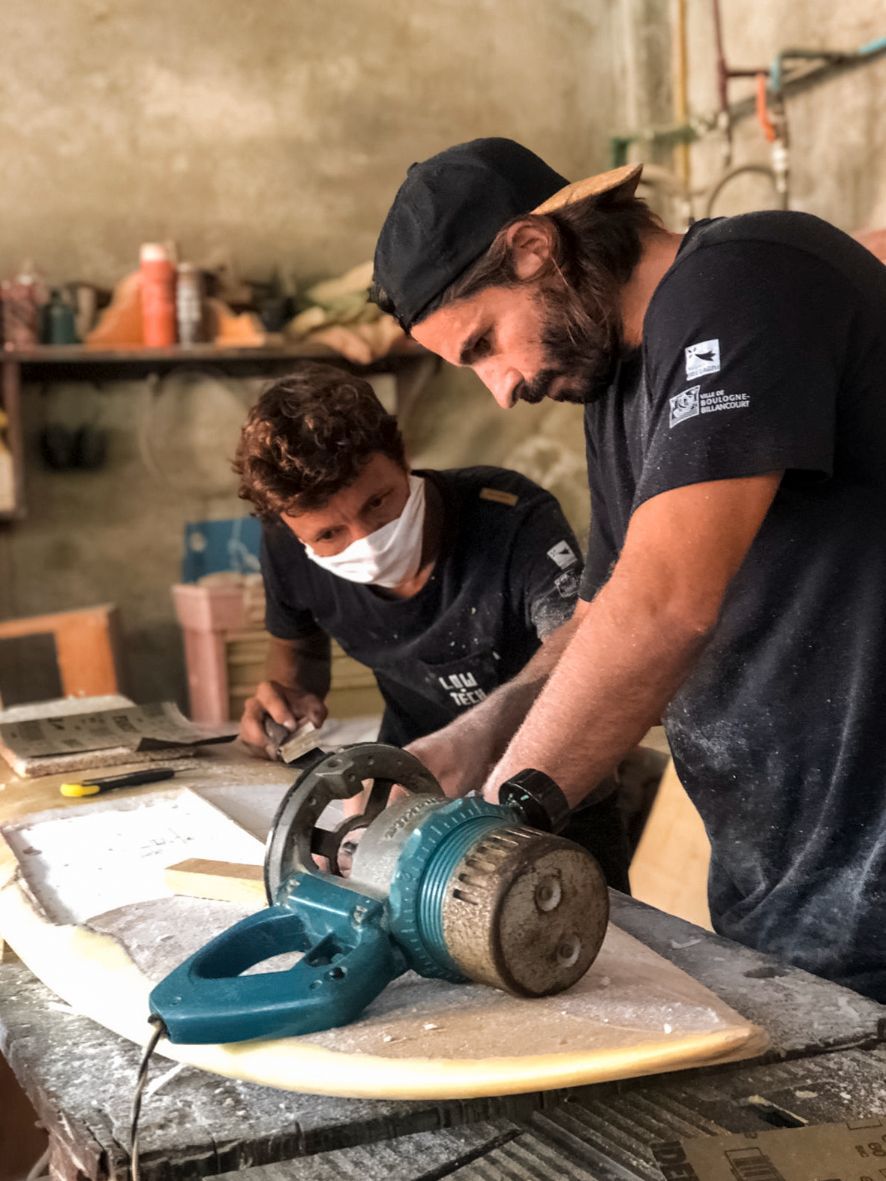Our Lunchtime Cinema pick for July is the 39-minute low-tech surf film ‘Wave of Change’. The adventure doc sees French professional surfer Damien Castera join Corentin de Chatelperron (better known as ‘Coco’), Guenolé Conrad and Caroline Pultz aboard a catamaran called the Nomade des Mers, a phrase which translates wonderfully to English as 'Nomad of the Seas'.
The boat is a floating laboratory which has been sailing around the world for five years pioneering low-tech innovations - back-to-basics solutions that fulfil our everyday human needs with clean tech that is easy to build, repair and access.
Coco and his team are hoping to contribute to the emergence of more sober, more respectful and more resilient ways of living. In short, to live better with less.
Low-tech is about encouraging a simpler way of living. Stick that together with some beautiful cinematography and surf scenes, and you've got yourself a film. 'Wave of Change' was written by Damien Castera, directed by Pierre Frechou and produced by Picture Organic. Watch below, then scroll on to read our chat with Castera about the low-tech movement and how the film came about.
“The idea for 'Wave of Change' was born after meeting the sailor and adventurer Corentin de Chatelperron,” Damien says. “Coco is leading the low-tech movement. He has been on a world tour of innovation for five years, and during that journey, he’s met inventors and [discovered] new technologies that he then tests on his boat, the famous Nomade des Mers.
“After sailing together for three weeks, the idea came to us to create an autonomous adventure, mixing our passions for surfing and low-tech."
So, what exactly is low-tech?
“Low-technologies are minimalist technologies that meet basic needs in the fields of energy, food, waste management, hygiene, and health,” says Damien. “They're accessible to all and are respectful of the environment. Coco tests them aboard the Nomade des Mers, and details how they work in tutorials, which are freely available online to help guide and inspire other people to try them too.
"Coco and his team are hoping to contribute to the emergence of more sober, respectful and resilient ways of living. In short, to live better with less.

“The idea with low-tech is to reclaim our relationship with the world by re-injecting meaning into our way of life; to give up a certain obsolescence of desires which push us towards more consumption, and to get closer to more sustainable technologies.”
In some ways surfing culture and the low-tech movement very closely align, but Castera admits the industry still has a long way to go in terms of sustainability.
“Surfing is by definition a sport, or an art, that is close to nature,” he says. “Unfortunately, the surf industry is far from being irreproachable in the production of its products: polystyrene boards with resin and fibreglass, neoprene based wetsuits. Low-techs would instead focus on designing more ecological and sustainable material, without the use of fossil fuels."

The highest tech equipment on board the Nomade des Mers during the filming process was, unsurprisingly, the camera equipment.
“Filming is always a bit of a challenge when using low-technologies," says Damien. "We had to recharge our video equipment using solar panels, and make sure that our filming kit was protected from the elements while we were at sea.
“The space on the boat is also very limited for filming which is a bit tricky, and the boat is constantly moving. For the surfing sessions, Pierre [Frechou], the cameraman, had to swim to the beach with a huge waterproof suitcase containing all the equipment to film. He had to cross the waves, climb onto the sand and then film there for hours under the blazing sun. It wasn't easy for him, but it allowed us to make a beautiful film."

Damien hopes that ultimately, the film inspires viewers to stop and think about the sort of daily consumption habits that usually go unchecked in our lives.
“I would love this film to contribute to a change in consciousness, especially about our consumption patterns - that we question ourselves more about our needs and desires, and try to answer them with our own means," he says. "Low-technologies are more than a simple alternative to high-tech tools, they represent a real philosophy of life; a way of thinking about the world according to our real needs and available means. And when it works, it's quite gratifying to see that we are able to reach a certain form of autonomy.”
Inspired? Read more about the Low Tech Lab on official website now! Feature image courtesy of Pierre Frechou and Picture Organic Clothing.

